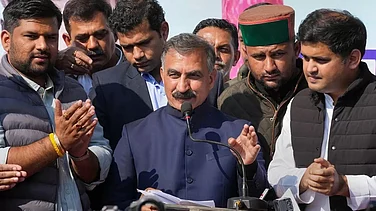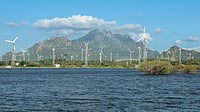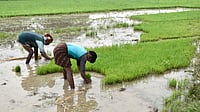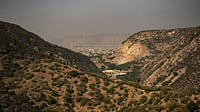The Indian government envisioned a Rs 720 billion development project on the Great Nicobar Island, aiming to establish a 'Hong Kong-like' hub. This project includes a transshipment harbour, a power plant, an airport and a new township, designed to link the area to crucial global trade routes along the Indian Ocean and the Suez Canal. Since it was envisioned in 2021, the project sparked an immediate divide. One segment wants to say this plan could be a massive boost to India's goal to counter China's mushrooming influence in the region. The other one is concerned about its potential impact on the island’s ecosystem and its inhabitants.
The Andaman and Nicobar Islands are home to some of the most isolated and vulnerable tribes in the world, including five tribes that are classified as "particularly vulnerable."
Recently, anthropologist Anice Justin, who has grown up in the Andaman and Nicobar Islands, expressed his concerns talking to the the BBC that Shompen group would suffer from this development the most. He also fears that the group could face a similar fate to the Nicobarese, the largest tribal community on the island, who were displaced in 2004 after a devastating Indian Ocean tsunami destroyed their villages
“Most Nicobarese here are now manual labourers and stay in a settlement instead of their ancestral lands,” Justin told BBC.
He further added that Shompen people do not have the knowledge or the means to survive in an industrial world. He also noted that the nomadic tribe is not in touch with the outside world much and this loss would be traumatic for them.
"Whatever we call development in the outside world is not of interest to them. They have a traditional life of their own," Justine noted.
At least 80 per cent of the Great Nicobar Island is covered with rainforests that shelter nearly 2,000 animals and around 1,000 flora species.
In April 2023, the Kolkata bench of the National Green Tribunal (NGT) imposed a two-month halt on the project and directed a high-powered committee (HPC) to investigate claims of inadequate attention to environmental issues and potential regulatory violations.
What Critics Say?
This year in June, Indian National Congress leader Jairam Ramesh flagged major concerns about the Great Nicobar Island Project on X. These include the destruction of a unique rainforest ecosystem through the diversion of 13,075 hectares of due forest land, the potential genocide of the Shompen tribe due to violations of legal safeguards and the project is situated in an earthquake-prone zone.
He further alleged the administration of compromising on due process in its rush for approval and did not adequately consult the Tribal Council of the Islands, as legally required. Ramesh then called for the suspension of the project and a thorough review by the relevant Parliamentary committees.
Government’s Response
In response, environment, forest and climate change minister Bhupender Yadav assured that the project will neither disturb nor displace tribespeople. He also informed that they had received environmental clearances based on the “rigour of environmental scrutiny and after incorporating consequent safeguards.”
Furthermore, he also stated that despite the forest land being diverted for the project, 82 per cent of the Great Nicobar area will still be preserved as protected forests, eco-sensitive zones, and biosphere reserves, exceeding the standard requirement of maintaining two-thirds of the area under forest cover.
Regarding the project's location, Yadav said that seismologists estimate that while a mega-earthquake like the one in 2004 (9.2 Mw) is unlikely soon, earthquakes with magnitudes of 5.5 to 7.0 Mw are possible within the next 50 years. He added that a budget of Rs 201.98 crore has been allocated for tribal welfare initiatives as well.


























